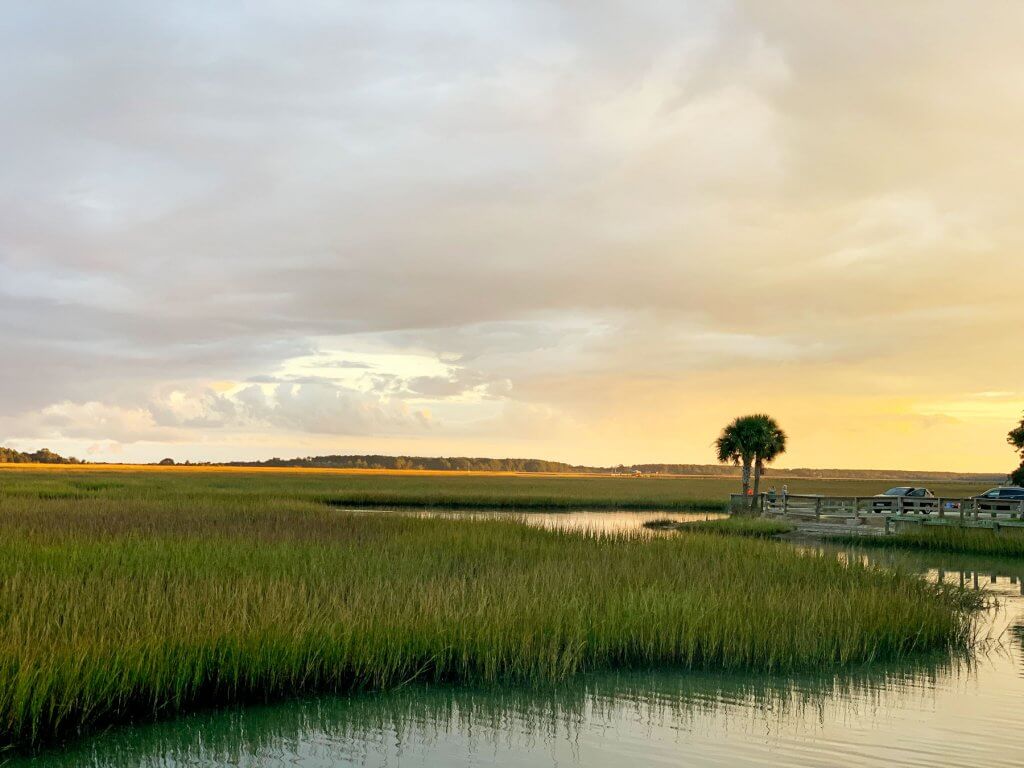
18 Nov The Crucial Marshlands of South Carolina.
The marshlands of South Carolina represent a vital ecosystem that plays an essential role in supporting a diverse range of wildlife species. These diverse habitats are important for many animals. Some animals live only in this area or use these wetlands as a crucial resting place during migration.
THE MARSHLANDS AS A HABITAT:
The marshlands of South Carolina are predominantly made up of saltmarshes and freshwater wetlands, each hosting a unique set of wildlife species. Saltmarshes are coastal areas affected by tides, with plants like cordgrass and needlerush that can tolerate salt. Freshwater wetlands are found inland and have different types of plants, like cypress trees, tupelo gum, and water lilies.
SIGNIFICANCE OF SALTMARSHES:
Saltmarshes are vital for various bird species, such as the Southern Bald Eagle, herons, egrets, and shorebirds like sandpipers and plovers. These birds rely on the abundance of fish, crabs, and other invertebrates found in saltmarsh habitats for food. Furthermore, many species of waterfowl, including the American Black Duck and the Northern Pintail, use these marshlands as vital breeding and nesting grounds.
IMPORTANCE OF FRESHWATER WETLANDS:
Freshwater wetlands, on the other hand, provide critical habitat for a diverse range of amphibians, reptiles, and mammals. Species such as the American Alligator, River Otter, and various species of turtles and frogs are commonly found in these wetlands. Additionally, these habitats support numerous fish species, providing essential food sources for both wildlife and humans alike.
BIODIVERSITY AND ENDEMISM:
The marshlands of South Carolina are also home to a plethora of plant and animal species that are endemic to the region. This includes various types of orchids, sundews, and other special plants. It also includes kinds of amphibians and reptiles such as the Carolina Anole and the Eastern Diamondback Rattlesnake. The conservation of these unique species is vital for maintaining the overall biodiversity of the region.
MIGRATION AND STOPOVER HABITAT:
Furthermore, the marshlands serve as an essential stopover point for numerous migratory bird species. During their annual migrations, birds such as the Semipalmated Sandpiper, Red Knot, and various species of warblers rely on the marshlands to rest and refuel before continuing their journey. The abundance of food and shelter provided by these wetlands is critical for the survival of these migratory species.
ECONOMIC AND ECOLOGICAL SERVICES:
In addition to their importance for wildlife, the marshlands also provide a range of economic and ecological services for humans. These include flood control, water purification, and support for commercial fisheries.
The wetlands act as natural buffers, absorbing floodwaters and preventing damage to human infrastructure. They also filter pollutants from the water, improving water quality for both wildlife and human consumption. Furthermore, the marshlands support a vibrant commercial fishing industry, providing livelihoods for many local communities.
CONSERVATION EFFORTS:
Despite their importance, the marshlands of South Carolina face numerous threats, including pollution, habitat fragmentation, and climate change. Taking steps to conserve these vital habitats is crucial for the benefit of both wildlife and humans. This means making rules to stop pollution, saving wetlands from being built on, and dealing with climate change effects.
The marshlands of South Carolina are an integral part of the region’s ecosystem, providing essential habitat for a diverse range of wildlife species. They also offer numerous economic and ecological services for humans. It is our responsibility to protect these vital habitats for future generations to enjoy. At Blue Wave Adventures, we’re proud to be good stewards of the environment and local ecosystem. Check out some of the ways we help protect our local ecosystems here.


Sorry, the comment form is closed at this time.